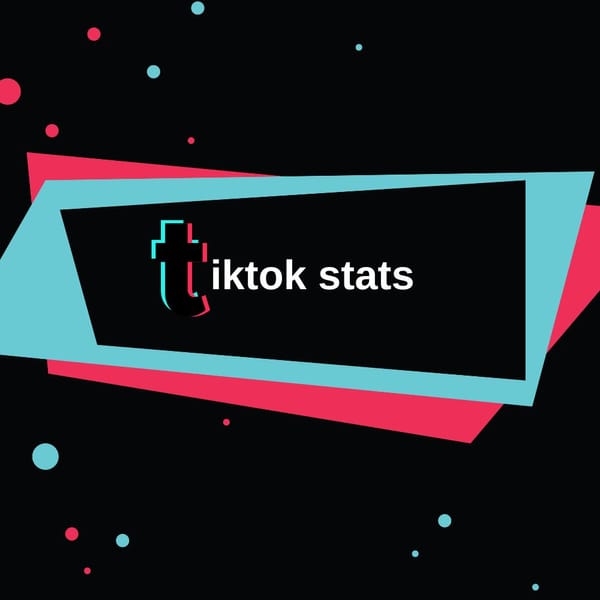Local SEO has become increasingly crucial for businesses aiming to attract nearby customers and boost their online visibility.
As Google's search algorithms evolve, understanding and implementing effective local SEO strategies is essential for staying competitive in 2024.
To succeed in local SEO, businesses must focus on three core ranking factors: relevance, distance, and prominence.
Relevance refers to how well a local listing matches a searcher's intent, while distance considers the proximity between the searcher and the business location.
Prominence, a key factor emphasized by Gotch, encompasses the overall online presence and reputation of a business.
To enhance local brand prominence involves strategies such as optimizing review count and quality on Google My Business, acquiring niche-relevant and geo-targeted backlinks, ensuring consistent citations across platforms, and maintaining a strong performance in organic search results.
By implementing a seven-step improvement plan, businesses can effectively optimize their local SEO efforts and gain a competitive edge in their local markets.
Here's how to get more visible on Google with your local businesss.
Understanding Local SEO Ranking Factors
Google determines local search rankings based on three key factors: relevance, distance, and prominence. Optimizing for these factors is crucial for improving a local business's visibility in search results and attracting more customers.
Relevance
Relevance in local SEO refers to how well a local business matches the search query and intent of the user. Enhancing relevance involves optimizing on-page elements such as title tags, meta descriptions, and content to incorporate relevant keywords and phrases that align with the products, services, or information the user is seeking.
Relevance is a crucial factor in local search rankings, as it determines how well a business matches the user's search query and intent.
By ensuring that a business's online presence accurately reflects its offerings and location, it can improve its chances of appearing in relevant local search results. Prominence is another key factor that influences local search rankings.
Distance
Transitioning from relevance to distance, another crucial factor in local SEO rankings is proximity to the searcher. Distance plays a significant role in determining the visibility of local businesses based on their geographic location relative to the user's search query.
Search engines prioritize nearby results when a location-specific term is used, making it essential for businesses to optimize their online presence for their target area.
By focusing on location-based SEO strategies, such as geo-targeting and optimizing for local keywords, businesses can improve their chances of appearing in search results for users in close proximity to their physical location.
Prominence
Prominence, one of the three key local search ranking factors, measures how well-known a business is within its community or industry. Factors that influence prominence include review count and score on Google My Business, quality backlinks, citation accuracy, and strong performance in organic search results.
In highly competitive verticals, prominence plays a crucial role in determining local search rankings.
Strategies to Improve Local Brand Prominence
Enhancing local brand prominence is crucial for businesses aiming to improve their visibility in local search results. Implementing effective strategies such as optimizing Google My Business listings, acquiring quality backlinks, ensuring citation accuracy, and maintaining a strong performance in organic search results can significantly boost a brand's local prominence.
Review count and score on Google My Business
Review count and overall rating are directly linked to local SEO success.
Google My Business reviews are a crucial factor in local SEO rankings. A high review count and positive overall rating can significantly boost a local business's visibility and prominence in Google's local search results.
Encouraging satisfied customers to leave reviews on Google My Business helps build trust, credibility, and a strong online reputation, ultimately attracting more local customers and improving the business's local search ranking.
Acquiring quality backlinks
Acquiring quality backlinks from reputable sources is crucial for improving local brand prominence and search engine rankings. Geo-targeted and niche-relevant links can significantly impact a business's visibility in local search results.
Strategies for obtaining high-quality backlinks include creating valuable content that attracts natural links, guest posting on local websites, and participating in local events or sponsorships.
Ensuring citation accuracy
Consistent, accurate business listings across online directories are essential for local SEO success. Google considers the uniformity of a business's name, address, phone number, and website (NAPW) information when determining local search rankings.
Discrepancies in this data can negatively impact a business's visibility and credibility.
To optimize citations, businesses should audit their existing listings, correct any inconsistencies, and ensure their information is up-to-date across all relevant directories.
Implementing a citation management strategy can help maintain accuracy and consistency over time, ultimately improving local search performance and driving more qualified traffic to the business.
Strong performance in organic search results
Strong organic search rankings significantly contribute to local SEO success and improved visibility in local search results.
Google considers a business's organic search performance as a key factor in determining its local pack rankings, making it crucial for businesses to optimize their website and content for relevant local keywords.
By focusing on improving organic search rankings through targeted keyword optimization, high-quality content creation, and strategic link building, businesses can enhance their local brand prominence and increase their chances of appearing in the coveted local pack.
This, in turn, leads to higher visibility, increased website traffic, and potentially more customers for local businesses.
Seven Steps to Improve Local SEO Rankings
Boost your local SEO rankings with these seven essential steps. Optimize your Google My Business listing, create a posting schedule, clean up citations, generate reviews, optimize website pages, produce geo-targeted content, and obtain local backlinks.
Step 1: Optimize Google My Business listing
Optimizing your Google My Business listing is the first crucial step in improving your local SEO rankings. Ensure that your business information is accurate, comprehensive, and up-to-date, including your business name, address, phone number, website URL, hours of operation, and categories.
Add high-quality photos and videos that showcase your business, products, or services to enhance your listing's visual appeal and engage potential customers.
Utilize the Google Posts feature to share timely updates, promotions, events, or new offerings directly on your Google My Business listing. This feature allows you to communicate directly with your target audience and keep your listing fresh and relevant.
Step 2: Create a posting schedule for GMB
After optimizing your Google My Business listing, the next crucial step is to create a consistent posting schedule. Regular updates and posts on your GMB profile can significantly boost engagement and visibility in local search results.
Aim to publish posts at least once a week, sharing relevant information about your business, such as special offers, events, or new products and services.
Establishing a posting strategy for your GMB profile is essential for maintaining a strong online presence and promoting your local business effectively.
By consistently providing valuable content to your audience, you can improve your search engine visibility and attract more potential customers.
Step 3: Clean up inconsistent citations
Cleaning up inconsistent citations is crucial for improving local SEO rankings. Inconsistent or inaccurate citations across online directories, local business listings, and map listings can negatively impact a business's reliability and visibility in local search results.
To ensure citation accuracy, verify and update the business's name, address, phone number and website (NAPW) information across all platforms, including Google My Business, Yelp, and other relevant directories.
Consistent citations enhance the business's credibility and help search engines understand the business's location and relevance to local searches. Implementing a local citation management strategy is essential for maintaining accurate and up-to-date business information across the web.".
Step 4: Generate more reviews
Generating more reviews is a critical component of any local SEO strategy. Positive customer reviews not only boost your online reputation but also improve your search engine visibility.
Encourage satisfied customers to leave reviews on your Google My Business listing, social media profiles, and other relevant platforms. Implement strategies like follow-up emails, review request cards, and incentives to drive more reviews.
Remember, a higher volume of genuine, positive reviews can significantly enhance trust and credibility, ultimately strengthening your local presence and optimizing your local search rankings.
Step 5: Optimize website pages
Optimizing existing website pages is crucial for improving local SEO performance. Focus on incorporating local keywords naturally throughout the page content, meta tags, and URLs to boost relevance for location-based searches.
Ensure that each page provides valuable, geo-targeted information that addresses the needs and interests of the local audience.
Enhance the website's structure and navigation to create a seamless user experience for local visitors. Implement a clear hierarchy of location-specific pages, such as dedicated pages for each service area or city served.
Step 6: Produce geo-targeted content
Creating content that specifically targets the local geography is a powerful strategy to improve local search rankings. By producing location-specific content, businesses can significantly boost their local search relevance and effectively engage with their target audience in the area they serve.
Geo-targeted SEO involves optimizing website pages and blog posts with localized keywords, phrases, and information that resonates with the local community, making it easier for potential customers to find the business when searching for products or services in their vicinity.
Step 7: Obtain backlinks from local sources
Acquiring backlinks from reputable local sources is a crucial strategy for improving local SEO rankings. These local backlinks can come from various places such as local business associations, neighborhood organizations, city-based publications, and community outreach efforts.
By obtaining these locally relevant backlinks, a business can enhance its prominence and relevance in local search results, ultimately leading to higher visibility and increased traffic from nearby customers.
Conclusion
Mastering local SEO is essential for businesses to thrive in the competitive landscape of 2024. By implementing the strategies outlined in this comprehensive checklist, you can optimize your online presence and attract more local customers.
Stay ahead of the game by consistently monitoring and adapting to the ever-evolving local search algorithms. With dedication and the right approach, your business can dominate the local search results and achieve long-term success.








